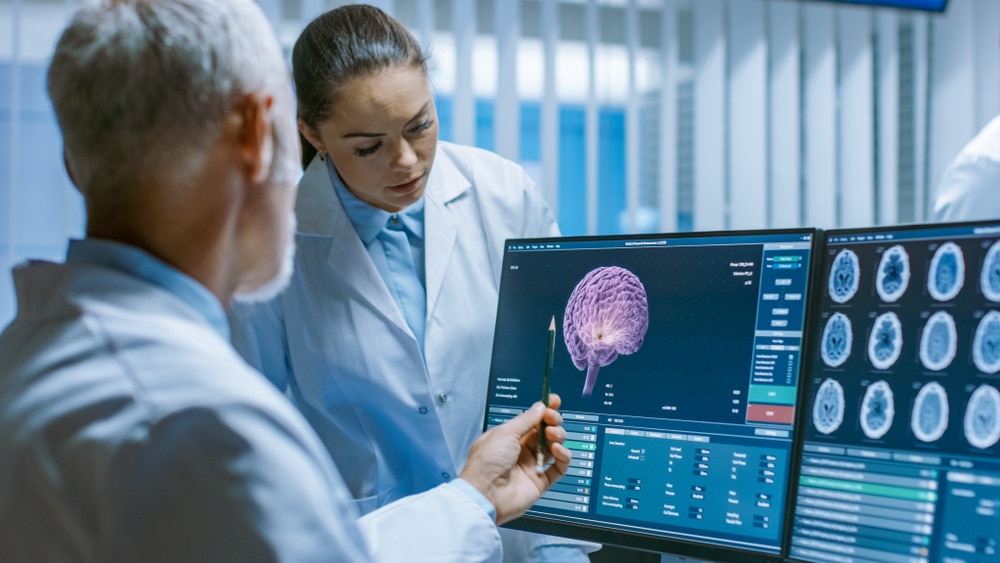Clinical oncology company Ayala Pharmaceuticals, Inc. has announced updated, positive interim results from part A of its ongoing RINGSIDE pivotal phase 2/3 clinical trial evaluating investigational new drug AL102 in desmoid tumors.
Ayala Pharmaceutical’s AL102 is a selective, oral gamma-secretase inhibitor.
The data are being featured in an oral presentation at the European Society for Medical Oncology (ESMO) Congress 2022, in Paris.
The presentation, “Initial Results of Phase 2/3 Trial of AL102 for Treatment of Desmoid Tumors” is being delivered by Robin Jones, head of the sarcoma unit at The Royal Marsden, London, U.K.
“The results presented at ESMO from the RINGSIDE study are very encouraging. AL102 demonstrated an early and meaningful effect on tumors within a 16-week period and was well tolerated, which could allow for long term treatment of patients. AL102 has the potential to significantly improve the lives of patients suffering from desmoid tumors who currently have no approved therapy,” Jones said.
Jeanne Whiting, executive director and co-founder of the Desmoid Tumor Research Foundation added: “Desmoid tumors are rare, connective tissue tumors that can have aggressive infiltrative growth and high risk of local recurrence. Patients and physicians struggle with the fact that there are no FDA-approved therapies.
“We are very encouraged by the results presented by Ayala and the opportunity that AL102 holds in improving outcomes for patients with this rare condition.”
Ayala Pharmaceutical’s AL102 anti-tumor activity
Roni Mamluk, chief executive officer of Ayala Pharmaceuticals, said: “We are excited to share strong interim results from the AL102 RINGSIDE study at this year’s ESMO Congress which continue to demonstrate early and meaningful anti-tumor activity as monotherapy in patients with desmoid tumors.
“Efficacy was demonstrated across all cohorts of part A of the study, with early responses that deepened over time. The results also showed that AL102 was well-tolerated across all doses. We are advancing to part B of RINGSIDE with a selected dose of 1.2mg once daily, as well as enrolling patients in the open label extension study. The results presented today give us increased confidence in the potential for AL102 to improve the lives of patients with desmoid tumors.”
The RINGSIDE pivotal phase 2/3 study is a randomized global multi-center trial. Part A of the study is evaluating the efficacy, safety, tolerability, and tumor volume by MRI after 16 weeks of AL102 in patients with desmoid tumors. It enrolled 42 patients and is evaluating three doses of AL102. Patients who participated in part A are eligible to enroll into an open-label extension study at the part B selected dose of 1.2 mg daily, and long-term efficacy and safety will be monitored.
Part B of the study is a double-blind, placebo-controlled segment enrolling up to 156 patients with progressive disease, comparing AL102 at 1.2 mg once daily to placebo. The primary endpoint for part B will be progression-free survival (PFS) with secondary endpoints including objective response rate (ORR), duration of response (DOR), tumor volume reduction, and patient-reported Quality of Life (QOL) measures.
About desmoid tumors
Desmoid tumors, also called aggressive fibromatosis or desmoid-type fibromatosis, are rare connective tissue tumors that typically arise in the upper and lower extremities, abdominal wall, head and neck area, mesenteric root, and chest wall with the potential to arise in additional parts of the body. Desmoid tumors do not metastasize, but often aggressively infiltrate neurovascular structures and vital organs.
People living with desmoid tumors are often limited in their daily life due to chronic pain, functional deficits, general decrease in their quality of life and organ dysfunction. Desmoid tumors have an annual incidence of approximately 1,700 patients in the U.S. and typically occur in patients between the ages of 15 and 60 years. They are most commonly diagnosed in young adults between 30-40 years of age and are more prevalent in females.
Today, surgery is no longer regarded as the cornerstone treatment of desmoid tumors due to a high rate of recurrence post-surgery and there are currently no FDA-approved systemic therapies for the treatment of unresectable, recurrent or progressive desmoid tumors.





